A task force created by Provost Rachel Croson will define how academic freedom is outlined at the University of Minnesota for tenured faculty.
The task force was created last spring to write the policy despite a standing committee responsible for issues of academic freedom.
Phil Buhlmann is the head of the task force and a professor in the chemistry department. He previously served 10 years in faculty governance as chair of the Academic Freedom & Tenure Committee (AF&T) and chair of the Faculty Consultative Committee in 2020-2021.
“The overarching goal is to make a lot of parties happy with this,” Buhlmann said. “Freedom of expression is not in question. Academic freedom, that needs to be protected.”
Eric Van Wyk, the current chair of the AF&T Committee and a professor of computer science and engineering, said he has handled issues regarding academic speech and freedom for the past three years.
The AF&T gave its expertise through a list of recommendations for the task force at the Sept. 26 Faculty Senate meeting.
Van Wyk said the structure of shared governance is divided into three different groups: the Board of Regents, administration, and the Office of the President and faculty governance.
“Task forces are administrative constructions, and so they fall under the administrative side of that,” Van Wyk said. “Even though they are populated by a lot of faculty, they’re not an element of the faculty senate.”
This distinction can lead to a lack of communication, Van Wyk said. Faculty Senate meetings are open to the public and keep minutes, but the public is not informed of task force meetings, nor are the meetings widely advertised.
The biggest point of debate among AF&T members was around academic unit, or department, statements, and how an academic unit is defined, Van Wyk said.
“The big question is ‘Do academic units have academic freedom?’ Faculty, students, staff and anyone who contributes to the intellectual mission of the University has academic freedom, the question is, do units enjoy this?” Van Wyk said.
According to the Board of Regents Academic Freedom and Responsibility policy, academic freedom is “the freedom, without institutional discipline or restraint, to discuss all relevant matters in the classroom, to explore all avenues of scholarship, research and creative expression, and to speak or write on matters of public concern as well as on matters related to professional duties and the functioning of the University.”
Defining a unit has proved difficult for both the AF&T committee and the task force.
“Central to what we’re doing in the task force, when people are speaking as a group, they really need to represent well what group they’re speaking on behalf of,” Buhlmann said.
Both groups are concerned with dissenting voices, and how to make sure those who disagree with a unit they belong to can express their opinion.
“We spent a lot of time asking, ‘Can this conflict be navigated?’” Van Wyk said. “We felt that it could be, and so then there’s a lot of stuff in the report and the recommendations about how to do that right, how to make sure that the voice of the majority is not silenced, but the voice of the minority is also not trampled upon, and no one feels like they are compelled.”
Buhlmann said it is important to include groups beyond academic departments like the Weisman Art Museum and the Arboretum, as they are also academic units on campus.
Academic Freedom has a broad approach across the University, Social Sciences Director of Libraries Danya Leebaw said.
“I and other librarians have research and publishing expectations, part of it is that our jobs are faculty-like,” Leebaw said. “To bring our expertise into our work, we really also need those freedoms and responsibilities that academic freedom is intended to provide.”
Two librarians sit on the AF&T committee, and Buhlmann said the task force has committed to working with groups across campus.
“The membership of that task force is very broad,” Buhlmann said. “This is really affecting a lot of what faculty are doing in departments. There are a lot of faculty members in this group from various parts of the University.”
There is currently no draft of the policy available, but the current plans are to finish the report in mid-October and present it to the president’s office, Buhlman said.
“We’re working with that goal that the Provost and the President would like to have a policy in place by the beginning of next year,” Buhlmann said. “When the (state) legislator in Saint Paul is going to start their session, and so that’s why we were kind of put on hyperdrive, really. We’ve been almost meeting weekly as a task force.”
Policy is something that develops over a long period of time, according to Van Wyk.
“It takes a long time for two reasons,” Van Wyk said. “One, it’s difficult. There’s a lot of thought that has to go into it, a lot of analysis, a lot of discussion. And also, it’s not my real job. The Senate meets once a month. Last spring, I was teaching 300-odd undergraduates, that’s my real job. And so going to meetings in the right sequence takes months because they meet once a month, it takes a long time.”








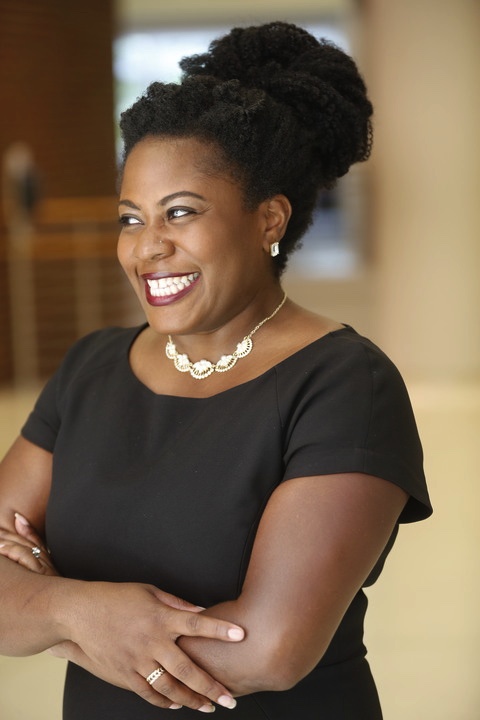
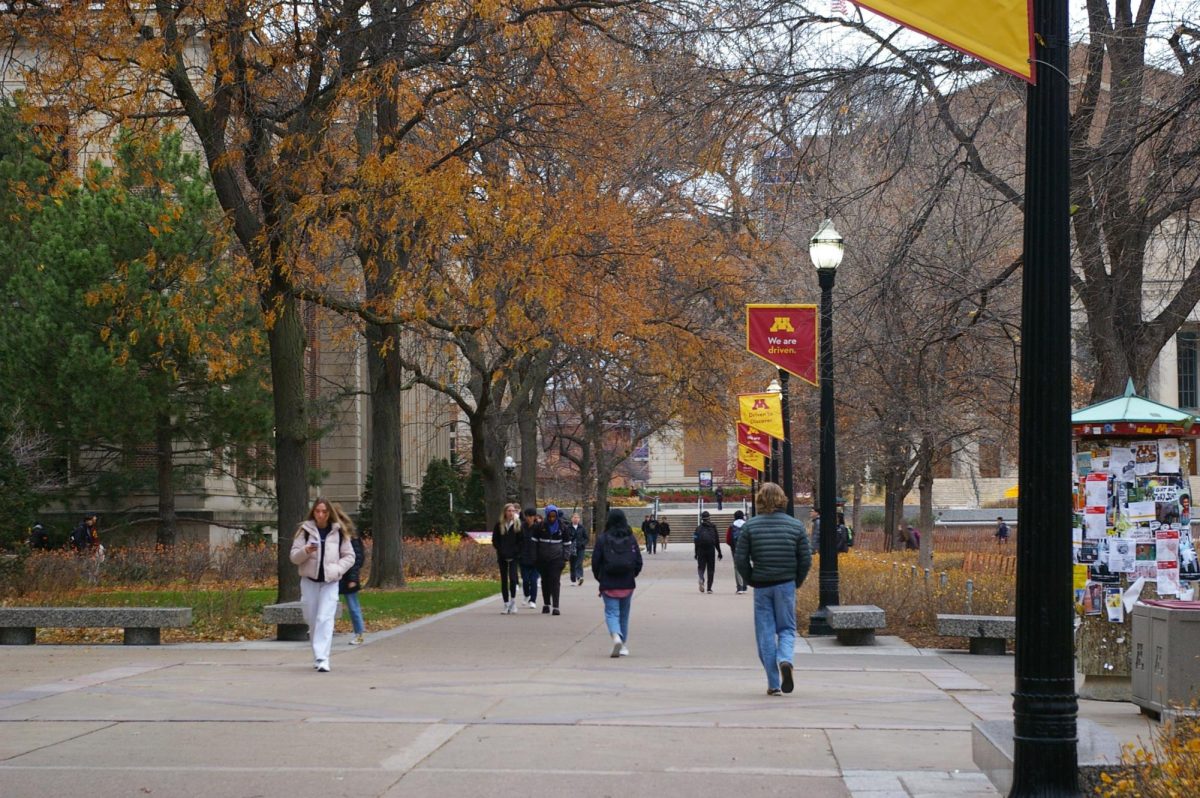
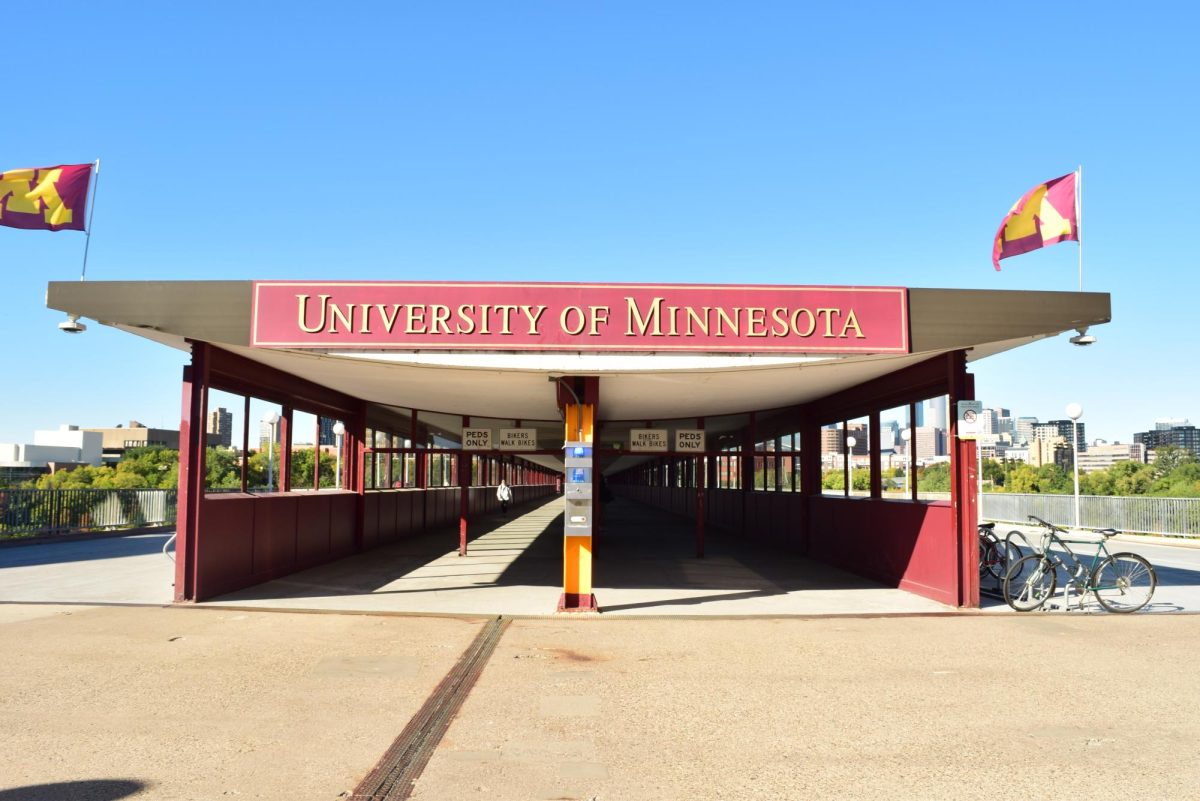
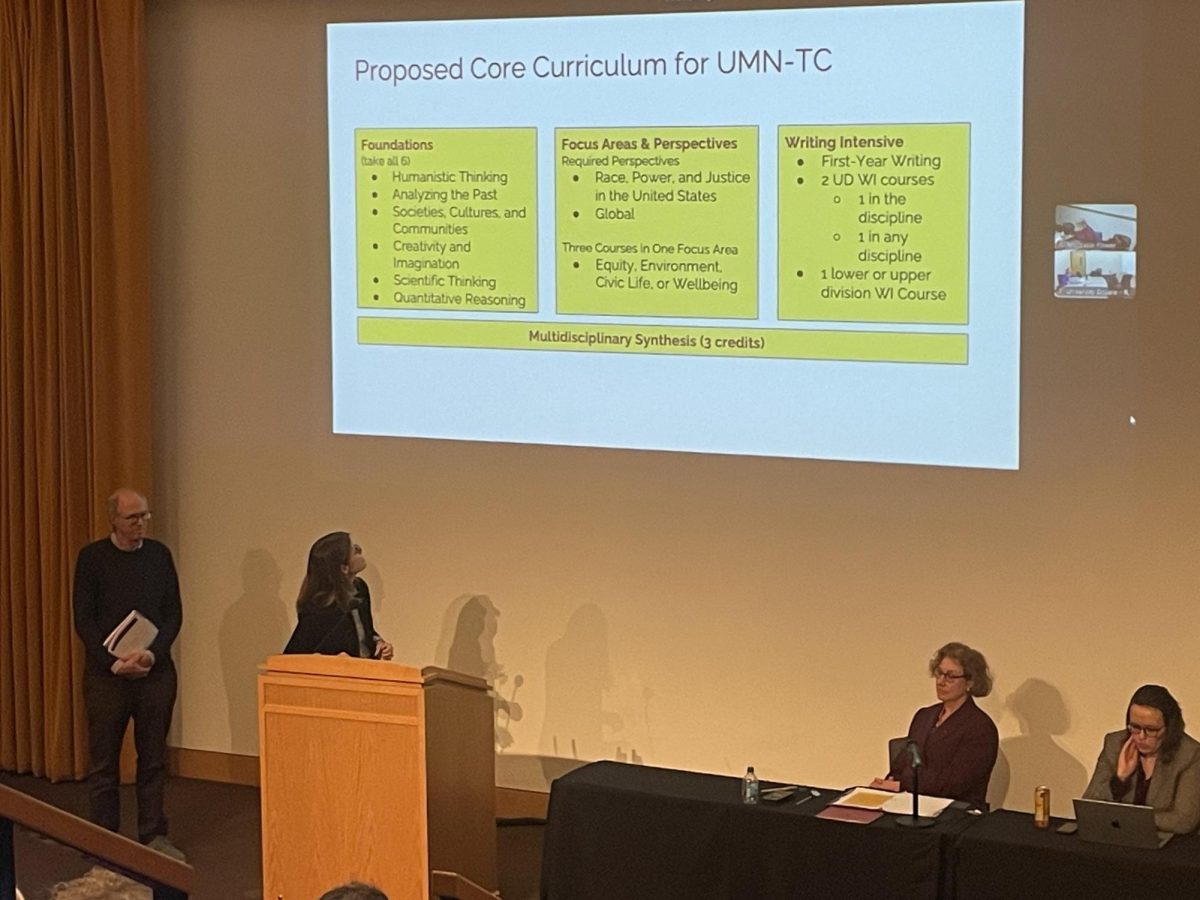
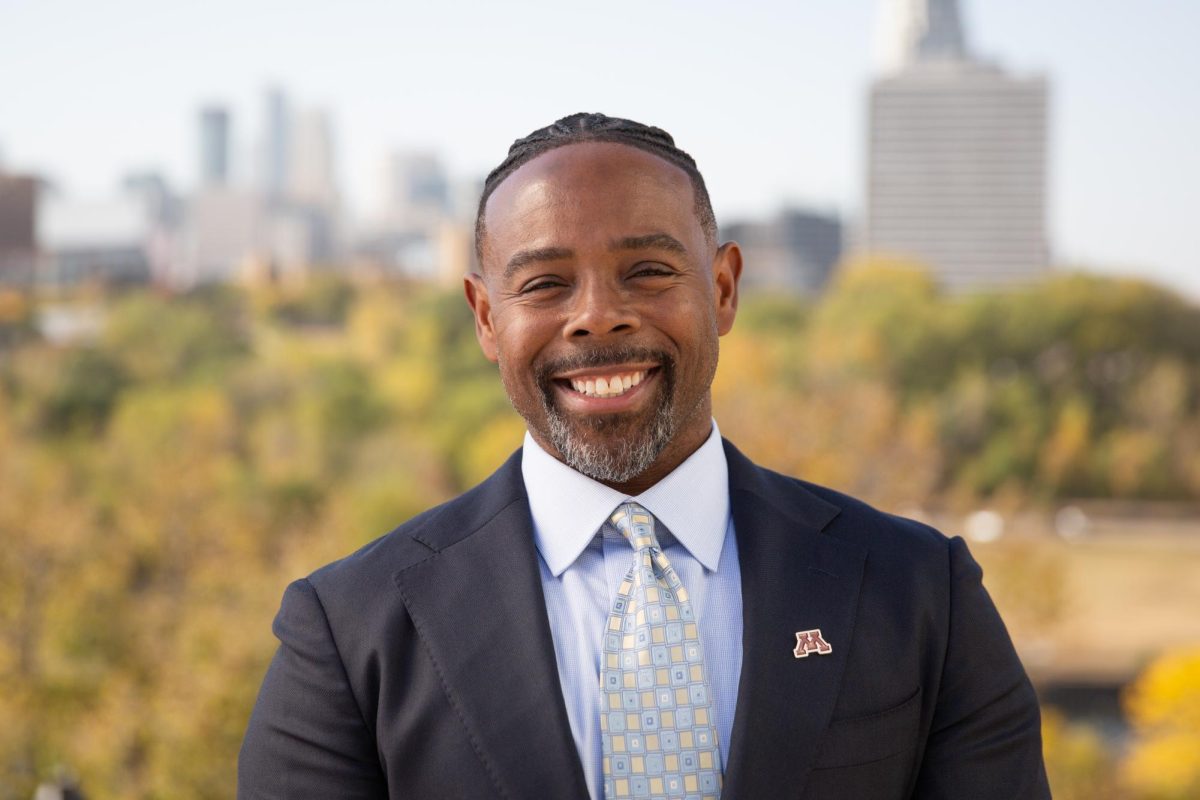
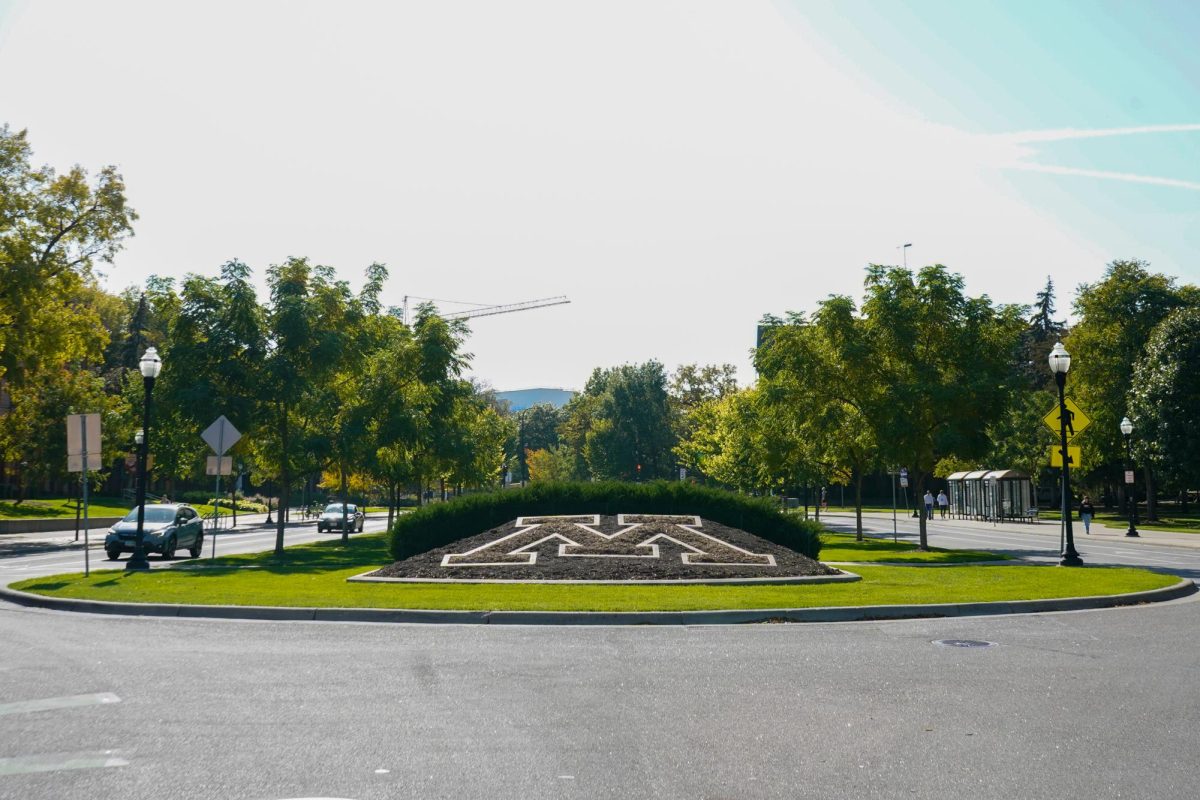
Loka
Oct 14, 2024 at 12:51 pm
There’s really no way to take Cronson seriously at this point. I feel for the people on this task force as any association with Cronson will diminish their reputation among their colleagues.
Angry Prof
Oct 12, 2024 at 11:14 am
Interesting that it sounds like Professor Buhlmann was on the Academic Freedom & Tenure committee while he co-founded a website against faculty unionization in 2016. That sounds like a conflict of interest?
Carolina del Norte
Oct 10, 2024 at 11:35 am
Provost Cronson created the task force, Phil Buhlmann is the head of it. Who else is on the task force?